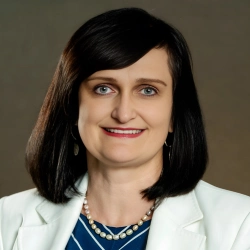
Anzhelika Ivasenko
Alfaisal University, Saudi ArabiaPresentation Title:
Exploring empathy: A report on how visual art can foster understanding and compassion
Abstract
Empathic communication and perspective-taking are essential skills for any healthcare provider, and they must be developed during the training process. Clinical empathy is considered to be a prerequisite for medical professionalism as empathic communication determines the formation of a therapeutic alliance between the patient and the physician, and positively influences treatment outcomes, satisfaction with care, and physicians’ burn-out rates. Numerous studies have demonstrated the effectiveness of incorporating the humanities into teaching soft skills. We designed an art project in the course of Medical Physiology for optometry students to help them understand how patients with different eye diseases and chronic somatic conditions perceive the world. This is a post hoc quasi-experimental study. The assignment "See the World Through My Eyes" was part of the Medical Physiology program. A total of 156 first-year optometry students were enrolled in the program from 2021 to 2023 and completed the assignment. The students were supposed to choose an art object from a copyright-free museum's online collection and transform it to reflect how patients might perceive it. Post-project feedback was used to evaluate the effectiveness of this intervention. Approximately 65% of participants reported a significant increase in knowledge, and 77% reported a substantial enhancement in perspective-taking. The common topics emerging from the narrative reflections were "clinical case presentation," "patient's perspective: understanding and explaining to others," "assumptions/stigmatization," "preparation for future profession," "pathological mechanisms," and "teamwork/collaborations." We believe that the project will help enhance observation and interpretation skills, create awareness of potential visual abnormalities in patients, promote empathy, compassion, and perspective-taking, and enable students to recognize assumptions and mitigate biases.
Biography
Anzhelika Ivasenko holds an MD (Ukraine), a PhD in Physiology (Ukraine), and an MS in Medical Education (UK). She has over 25 years of experience in teaching and administration at medical schools in Ukraine and internationally. Research interests include curriculum development and evaluation, case-based teaching, teaching soft skills, the use of visual art in education, and narrative medicine.

